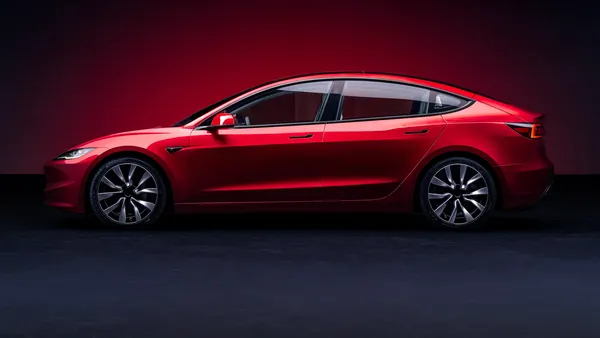Editor's note: This story is part of the WardsAuto digital archive, which may include content that was first published in print, or in different web layouts.
Car dealership service departments should position themselves as the go-to places for work on battery-electric vehicles, specialists at Ted Ings’ “Back to the ‘80s” Fixed Ops Roundtable say
Why should BEV owners take their vehicles to dealerships instead of independent repair shops?
Because of the BEV expertise of dealership auto technicians, says Ed Roberts, chief operating officer of Bozart Ford and Lincoln in Saint Augustine, FL.
“The outside has no (BEV) training on its end,” he says. “If we establish ourselves as the experts at BEV repair and maintenance, people will come to us."
BEVs are rolling computers so servicing them requires the know-how dealerships wield over automotive service competitors.
“People have to come to us” for BEV technological expertise, he says.
Yet, BEVs’ propulsion systems are less complicated than internal combustion engines. Consequently, BEVs require less service work and maintenance than ICE vehicles.
Revenue-minded service managers may fret about a drop in repair orders as BEV adoption grows
But Tully Williams, fixed operations director for the Niello Company dealerships based in Sacramento, CA, touts the dealers’ edge in the highly competitive vehicle service sector.
“Make sure customers know you have factory-trained technicians,” he says. “Educate them as to why dealerships are the experts – and the place to bring your BEV.”
Kristine Jones, a social media specialist, agrees.
“Train and educate customers so they want to go back to you,” she advises dealership service people.
Beyond enlightening new BEV owners, dealership service departments should wow them, says Mickey Quinn, president of agency services for Vanguard Dealer Services, a finance and insurance company.
“Make service a great experience,” he recommends. “Treat them with empathy and understanding.”
Jones adds: “Make it an accommodating experience. Roll out the red carpet.”
Today’s BEV owners aren’t all the same. Some are first-time buyers “who are in the wilderness” when it comes to their knowledge of electric vehicle ownership, Roberts says.
Conversely, other BEV owners “are very knowledgeable about their vehicles,” Williams says.
Savvy service department personnel know how to handle both.
Roberts and Williams cite a no-no when providing loaner vehicles to BEV service customers.
“People buy BEVs for different reasons, but they don’t want an ICE vehicle as a service loaner,” Roberts says.
Williams contends that giving an ICE loaner to an BEV service customer likely “will result in a conversation, usually unpleasant.”
On the flip side, giving a BEV loaner to a customer who owns an ICE vehicle in for service can lead to a pleasant (and profitable) experience for the dealership, says Roberts, recalling a recent incident.
“We gave a Ford Mustang Mach-E as a loaner to an ICE owner,” he says. “The next day he bought one.”









